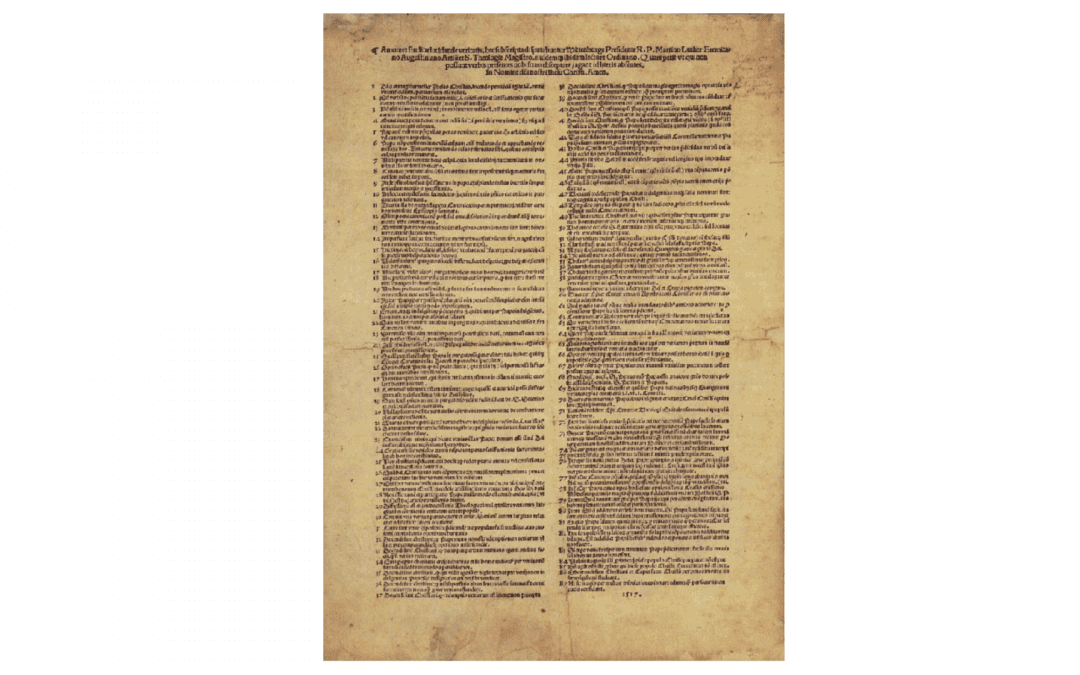This is my pick for today, and I don’t care which calendar it was. Martin Luther sent his 95 theses to Albrecht Von Brandenburg, the Archbishop of Mainz, which precipitated the Protestant reformation.
I don’t doubt that Luther had a few good points. Indulgences, that is paying for absolution, seem corrupt. Likewise, translating the Bible into the vernacular (in his case, German), from Latin, feels right.
On the other hand, Luther precipitated a series of wars which ravaged Europe for centuries. Without Luther’s Protestantism, there probably wouldn’t have been a Spanish Armada, and I wouldn’t have written the Sir Anthony Standen Adventures. What a small price that would have been for the avoidance of even one death in Northern Ireland. Luther’s hand reached far into the future.
Indeed, with his anti-Semitic writings, Luther contributed to Hitler’s holocaust. My latest book, Called to Account, to be published on 8th November, has a theme of Luther’s contribution to anti-Semitism.
I confess that I’m in some ways sorry that the role of Latin was diminished. That’s because, rather late in life, I began to seriously study languages. I took a degree in Modern Language Studies with the Open University. I studied Spanish and French, and deeply regretted my far too brief study of Latin at school. On my first day’s Latin class, I was still chatting a second after Mr Wilson, the Latin master, had begun to speak. He banished me to sit behind the filing cabinet, from where I couldn’t see the blackboard. And there I stayed, in Mr Wilson’s class, for weeks, by which time any chance I had of learning Latin was over. Latin is the base of the Romance languages, French, Spanish, Italian, Portuguese, and others. German owes much of its grammar to Latin.
Might there have been an alternative way of addressing the corruption of the Catholic Church? Could it have been possible to avoid the seemingly endless wars in Europe? I suppose we’ll never know.

